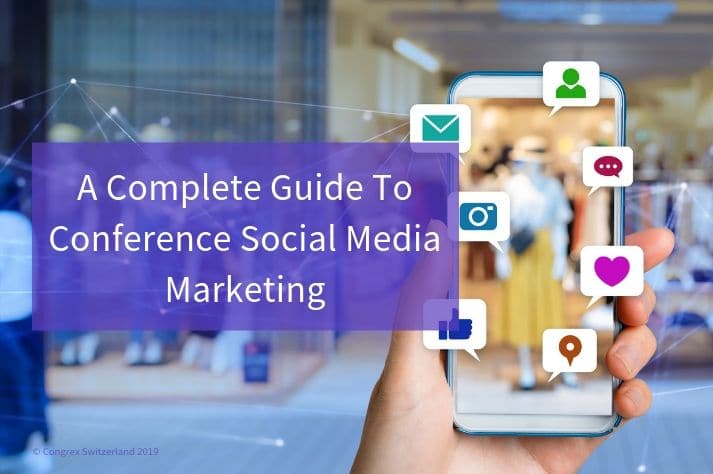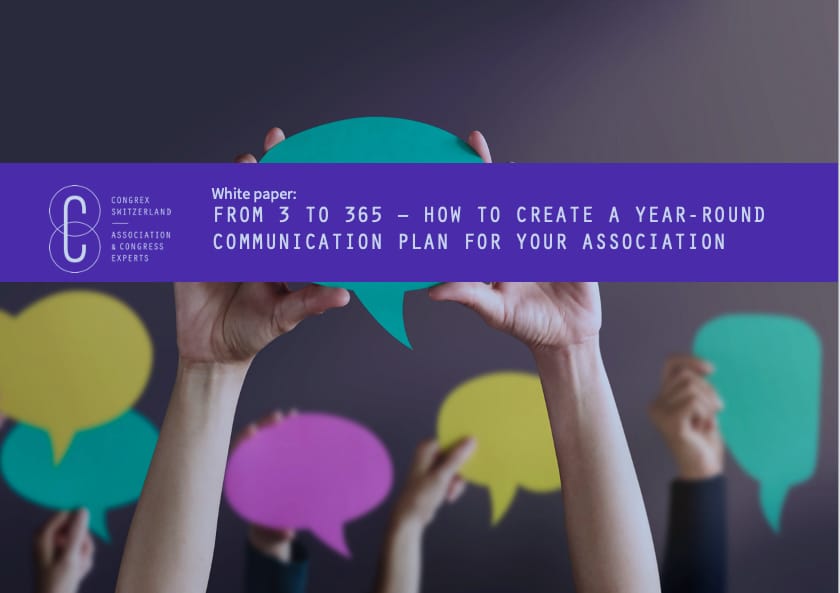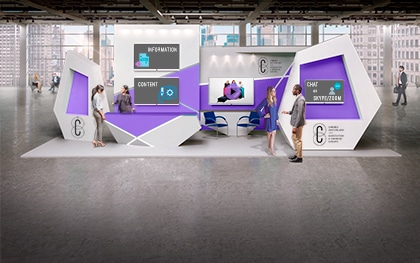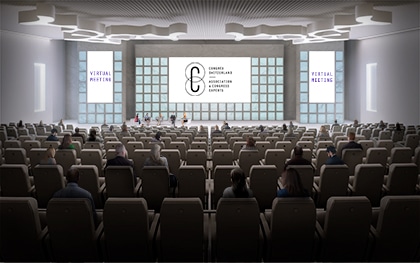Social media has changed the nature of events, prioritising elements like engagement, communication, and interaction over the plain delivery of information. The latest data on social media use shows that there are nearly 3.5 billion social media users worldwide and growth shows no signs of stopping.
Given the widespread use of social media, it makes sense to consider how this channel can help with conference planning. Some major scientific and medical meetings across the world are already promoting their event on social media, such as the ECTRIMS 2019 – 35th Congress of the European Committee for Treatment and Research in Multiple Sclerosis and 24th Annual Conference of Rehabilitation in MS or the BASEL LIFE 2019. Moreover, reports on attendee engagement created via social media in medical conferences demonstrate impressive year-on-year growth rates.
RELATED: The Synergy of Social Media and Successful Conferences
Yet, social media for science and research remains underused at these events, and some organisers hesitate to use media event marketing. Some are too busy with other aspects of event content marketing, and there’s the generalised belief that spending time on social media isn’t productive. However, using conference marketing and social media can widen the impact of an event or conference, as long as there is a social media strategy in place. Below is our guide to creating content in social media to boost the reach of medical/scientific events.
Pre-Event Conference Marketing & Social Media
Start promoting a conference on social networks months before the event, as studies show that event attendees are involved in social media conversations prior to the event just as much as during the event.
The first step is choosing a platform that aligns with your goals and audience. Typical goals at this stage include increasing ticket sales or event registration. Here are a few pointers:
– Twitter is the most used platform in scientific events given its ability to generate discussion and engage global audiences using concise messages.
– LinkedIn (a social network for professionals) should also be considered. Many delegates will already be using it, and along with Facebook, it’s a good platform to create long-form content about your event.
– As a complement, and if your audience has a large number of young professionals, you could use Instagram to draw attention to the social aspect of the event or to showcase sneak peeks into the preparations.
RELATED: How Can Digital Marketing Play A Role in Conference Management?
– Choose an event hashtag using this guide.
– You want to build momentum, so release information gradually in your chosen social media platforms, covering things like event date, venue, programme highlights, special guests, teaser images, early-bird rates, etc.
Conference Social Media Marketing During The Event
Medical/scientific conferences are information-rich events, so you’ll want to focus on how to use social media to delight and engage the audience.
– Post a variety of real-time content (behind the scenes, short interviews, quotes, etc.) and use your hashtag on every post. Sessions often run simultaneously in medical/scientific events, so live posting snippets of your conference on social media gives professionals who cannot attend an opportunity to follow the event highlights. Live tweets are a great tool to achieve this.
– Get sponsors involved to amplify your message, and give them everything they need (hashtags, images, sample texts, etc.)
RELATED: Six Ideas For Creating A Standout Event Sponsorship Proposal
– Monitor the content delegates are posting and share it. Also, make sure to reply to every mention to personally connect with the audience.
– Collect content like videos, group photos, testimonials, and top tweets, giving priority to multimedia formats. This can be curated to promote future events once the conference is over.
Post-Event Conference Marketing & Social Media
The conference may be over, but its impact isn’t. This is another opportunity for engagement where you can encourage event delegates to attend future conferences and attract new and potential attendees or sponsors.
RELATED: Building Relationships Online With Social Media Marketing
At this stage, you can use social media to thank everyone who was involved in the event and to share conference highlights with visually appealing social media posts. You can also create a survey requesting feedback and post the link on social media, and start sharing what you’re doing to plan your next event. On this note, remember that social networks have built-in analytics tools. See this guide to see how to use them to track engagement and plan future event strategies.
Conclusion
The impact of effective social media on conference planning can be extraordinary and its benefits range from driving ticket purchases or registrations for future events to attracting new members and securing sponsors. A well-planned social media marketing strategy is built on a cycle of anticipation, engagement, and follow up. Get in touch with Congrex to find out how to leverage the power of social media marketing at your event.
——
Congrex Switzerland is an internationally operating agency delivering customised solutions. This encompasses the overall organisation of conferences and meetings including the management of hotel rooms and the strategic consultancy. Annually Congrex Switzerland organises approximately 45 events with over 73’000 delegates. Amongst our clients are international associations, governmental organisations and corporations.




